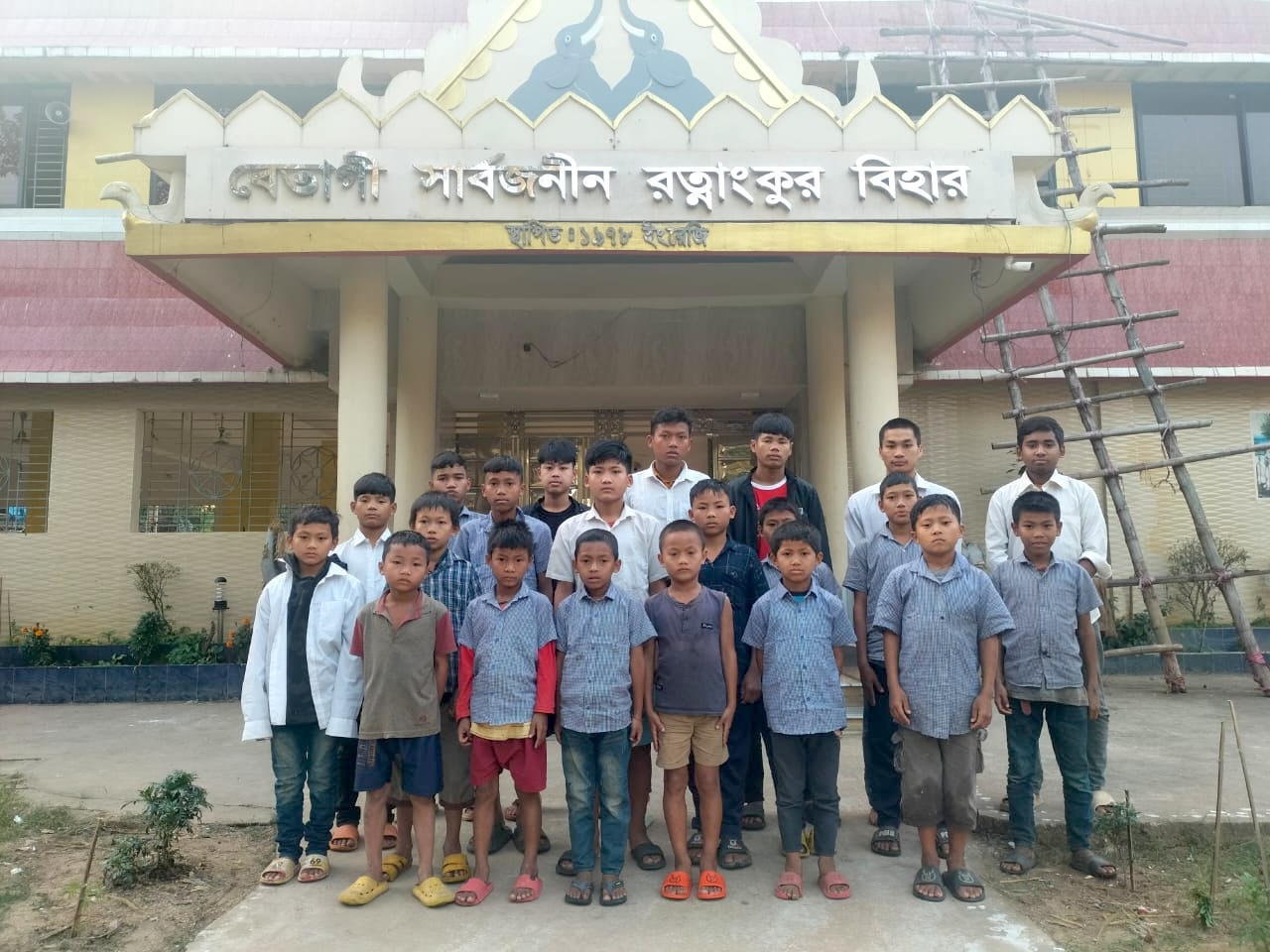Children living at the Orphans’ Home Complex in Betagi. Photo courtesy of the Bangladesh Buddhist Missionary Society.
By BGR Staff
The remote Chittagong Hill Tracts region of Bangladesh has for centuries been home to the Indigenous tribal peoples collectively known as the Jumma. The thirteen Indigenous groups that make up the Jumma, including the Chakma, Marma, Tripura, Tanchangya, and Mro peoples, are religious, ethnic, and cultural minorities in this Muslim-majority country. In the 1970s and 1980s, governmental policies encouraged settlement in this region by people of the Bengali ethnic majority, a process which has led to the increasing marginalization of the Indigenous communities, including systemic discrimination, displacement from their lands, and violent conflicts.
In Betagi, located in the Chittagong Hill region near the Karnaphuli River, the Bangladesh Buddhist Missionary Society (BBMS) provides shelter and care to orphaned children from impoverished families at its Orphans’ Home Complex. Founded in 1977, BBMS is a nonsectarian nongovernmental organization providing humanitarian assistance to the needy, especially orphans and widows, under the guidance of its founder, the Ven. Jivanananda Mahathero, a Buddhist monk who dedicated his life to the service of suffering humanity.
BGR has partnered with BBMS since 2015 to provide three nutritious, culturally appropriate meals a day to the 58 children who live at the Orphans’ Home Complex. This project is designed not only to fulfill the children’s dietary needs but also to foster a nurturing environment where communal dining helps to build a sense of belonging and community among the children, particularly crucial for those recovering from trauma and loss.
BGR funding supports the purchase of food, including rice, vegetables, milk, and beans, to feed the children for the full calendar year. This support provides a basis for the children’s future, ensuring that they have the nutrition they require for appropriate cognitive development and the attention and engagement needed to succeed in school.
Gauranga Tanchangya, a 9-year-old boy from Raikhali village, was raised in a family that struggled to provide for their children due to the harsh conditions of life in this remote region, with no access to basic health care or education. Despite these challenges, Gauranga showed immense potential from a young age, and he has thrived academically at the Orphans’ Home Complex, excelling in subjects like science and math. He intends one day to become a doctor, to help the people in his home community who have long suffered from treatable illnesses due to a lack of access to medical care. “His commitment and achievements inspire everyone around him, and we hope to see him one day return to his village as a beacon of hope,” our partner writes.
Sai Mon Marma is a 7-year-old boy from one of the most neglected regions of Bangladesh. Like Guaranga, he came from a village without access to health care or education. Since his arrival at the Orphans’ Home Complex, he has transformed from a quiet child into a curious and bright student. He has shown remarkable talent in art and storytelling, often drawing scenes from his village and imagining a better future. He dreams of becoming a schoolteacher and hopes one day to return to his village and educate children who, like him, had no access to learning.
Eight-year-old Nirban Chakma lost both of his parents in early childhood. He had no family or other source of support in his small, isolated village. At the Orphans’ Home Complex, he found not only shelter but purpose. Given the opportunity to learn, he quickly excelled in problem-solving and creative thinking. His fascination with how things work has grown into a dream of becoming an engineer, eager to bring improvements to his village.
This article is based on project reporting by BGR partner Bangladesh Buddhist Missionary Society.





